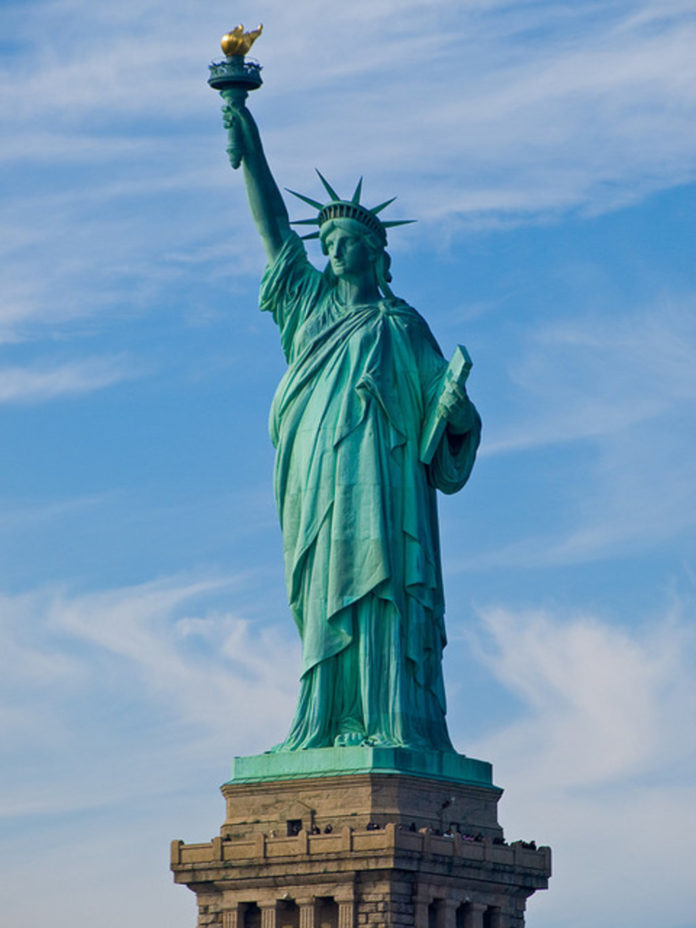Our liberty and freedoms which we enjoy as Americans are under imminent threat. There has been over two centuries of individual freedom, peace, and prosperity under a free-market capitalist system in the US the likes of which there has been no equal in the rest of the world in both size or scale. One feature of our free-market capitalism is that it has a proven track record of lifting the standard of living of all people, rich and poor above those living in non-capitalist societies. Yet despite the history of success and a 100% failure rate for socialism and communism, it seems somehow these bad ideas have become fashionable ideas once again never mind the death and misery they have caused.
The Paradox
There is a paradox at work. That paradox occurs when a society lives in peace, comfort and growing wealth for an extended period of time. At some point, these societies and its people will turn inward against itself to tear up what has worked and replace it with what sounds good. It’s human nature. We see this time and time again throughout history. Sometimes, the overturning of traditional ways, systems, and institutions results in the betterment of lives for everyone (i.e. Feudalism). However, in recent history when these upheavals turn towards communism/socialism it always turns out to be tragically bad for the average citizen. Revisionists and apologists for communism/socialism say because it was never done right to begin with. That is just plain wrong. It has been implemented to the letter by Russia, China, Cambodia, Vietnam, North Korea, etc. and it failed every time. The consistent legacy of failure is so clear, only the very naive or the very cynical can ignore it.
Disaster and Tragedy
For proof that communism/socialism doesn’t work one does not need to look any further than the countries that have tried it and failed. Russia is no longer socialist/communist but is now a capitalistic economy with an oligarchical political leadership. China is a free-market capitalistic economy with a dictatorial one-party political system. The UK turned socialist in the 1960’s and its economy stagnated and went into a depression until Margaret Thatcher broke up the union stranglehold on the economy and deregulated ushering in economic growth. If Karl Marx were alive today, he would be shocked and dismayed by the death and tragedy his socialist theory has caused. As a philosopher concerned with the suffering of ordinary people (and yet who lived a very well-to-do lifestyle due to his sponsors…but I digress), he would renounce his own ideas for the unimaginable suffering caused in his name and by those who want to justify their actions.
Cases in point:
- The millions who perished in Russian gulags or were executed as Stalin implemented his socialist vision
- The millions who perished in China under Mao from starvation or work camps for “re-education” in the name of a socialist workers state
- The million or so Cambodians who perished under Pol Pott in the name of building a socialist paradise
- The tens of thousands who died in Cuba trying to escape Fidel Castro and his communist revolution
- The millions currently suffering and dying under dictatorial socialist/communist regimes in North Korea and Venezuela
Photo: West Berlin police with pistols drawn, protect a woman who fled across the East/West Berlin border to escape communism.

Utopia Doesn’t Exist
The leftists love to point to Europe and especially the Scandinavian countries as examples of where Socialism can work. In modern times, oil-rich Venezuela became a socialist poster child for leftists like Bernie Sanders who proclaimed that socialism works…until the Venezuelan economy crashed because of socialism and millions of people starved. Nowadays poor Bernie gets angry when asked about his support of Venezuelan socialism.
- Sweden was growing its economy by leaps and bounds in the 1970s until it was one of the richest in the world. It had several organic advantages to include a pro-business capitalistic economy, a well educated and homogeneous population, and an ingrained work ethic that culturally didn’t accept living off government handouts. In the 1980s, Swedish Socialists won the elections and have began handing out money and embarked upon expensive social programs. Their economy began to decline (as measured by GDP) and with the recent influx of middle eastern refugees, the Swedes are now trying to unwind their expensive social programs to become more competitive and reverse the downward slide.
- Venezuela was one of the richest Latin American countries with a booming oil economy and plenty of natural resources. In a popular vote, the people elected socialist Hugo Chavez, a military general who ran on a platform of spreading wealth to the poor. Chavez then effectively took complete control of the government and nationalized the oil industry and began giving money to the poor as he promised. The economy crashed and yet he continued to get re-elected by the poor of the country as he continued to hand out piles of money until his death. In the past couple of years, despite still having huge oil reserves, the Venezuelan economy has crashed and 2 million of its citizens have fled the country in search of food, medicine, and freedom. The Venezuelan oil industry can no longer produce as much oil as it once did due to a lack of reinvestment and gross government mismanagement.
- The Netherlands has high personal income taxes but the citizens benefit from 100% covered healthcare and education while at the same time maintaining a small government bureaucracy. However, ask and Dutch person and they will tell you they are not socialists as they have a very pro-business, low-regulatory environment and the country is home to some of the largest corporate conglomerates in the world. Those corporations have their headquarters there because of the supportive business environment (i.e Phillips, Shell, Unilever, etc.).
Poverty is Subjective
Would you rather be someone who is considered “poor” in the US or would you rather be considered poor living in someplace like Mexico? How about Venezuela? Would you rather be poor living in the US or be poor in Cambodia? Poverty exists in all countries and in all forms of economic systems whether socialist/communist or free-market first world. Free market capitalism has raised the standard of living for more people across the world, rich and poor alike than any other form of economic organization. The major issues facing the poor in the US is not starvation, they are low-wages, drug use, and obesity. Since the 1970’s, the US has poured money into the “War on Poverty” and the hundreds of billions spent on providing housing, food, healthcare, and job training has not moved the poverty rate one bit in the right direction. Ironically, the US was able to pour billions into such programs because of the very fact it is a rich free-market capitalist country. Interestingly enough, poverty has increased slightly since the declaration of war on poverty. Even so, the poor in the US have homes, cars, food, television, and cell phones. Imagine being poor in someplace like India (not to pick on any one country in particular).
Meme: People living under socialism always flee towards capitalism.

























Some salient points to make about Sweden and it’s remarkable early economic successes after WW II:
The neutral nation didn’t get bombed in the war. It didn’t lose any working men or women to battle-active war conscription, nor commit its economy to war. It didn’t have to rebuild like most of the rest of Europe.
But most importantly, it allowed Germany to roll on through to Norway, which was occupied by the Nazis. It “allowed” German naval to use its waters. It complied in many ways with Nazi Germany to keep favor, and was spared occupation.
[…] In Defense of Liberty (Part 1) […]
This is a well written article. I can’t wait to see part two!